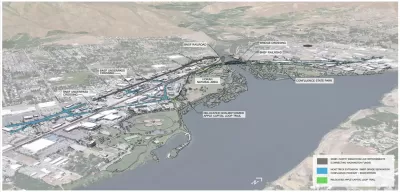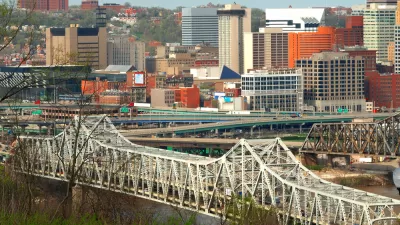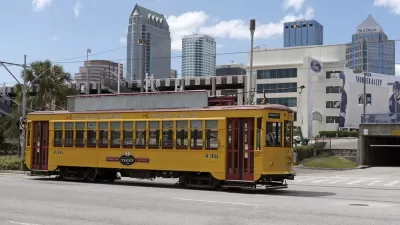Rural Washington communities want to see federal infrastructure funding allocated to projects in the historically neglected eastern parts of the state.

Jacob Jones of Crosscut.com describes the projects that rural leaders in Washington state hope will be funded through the Infrastructure Investment and Jobs Act (IIJA). But many worry that rural areas will be ignored by the state legislature. "Of $4 billion allocated to new and existing highway projects in the transportation proposal before the Legislature this year, just $2.5 million (less than 1%) goes to projects east of the Cascades."
According to the article, "Rural communities have prioritized additional state dollars for economic development, water treatment systems, broadband networks, mental health services and flood control measures. Smaller cities and counties have also asked for more predictable shared revenue and flexibility on local tax options."
"Local leaders around the state say they are watching where those dollars go, as they make their own decisions on how to use federal recovery money to rebuild their communities. While local cities and counties have control over how some federal infrastructure dollars can be spent, they must wait for the Legislature to decide how the rest of the billions in transportation stimulus money will be distributed."
Jones mentions that "The transportation package would still offer billions of dollars to many cities outside the Puget Sound region to pay for switching bus fleets to electric, fish barrier removal, safety programs, new bike trails and many other initiatives. About $151 million would go to railroad line rehabilitation in Eastern Washington."
FULL STORY: Rural WA wants in on state highway, health and housing dollars

Study: Maui’s Plan to Convert Vacation Rentals to Long-Term Housing Could Cause Nearly $1 Billion Economic Loss
The plan would reduce visitor accommodation by 25,% resulting in 1,900 jobs lost.

Alabama: Trump Terminates Settlements for Black Communities Harmed By Raw Sewage
Trump deemed the landmark civil rights agreement “illegal DEI and environmental justice policy.”

North Texas Transit Leaders Tout Benefits of TOD for Growing Region
At a summit focused on transit-oriented development, policymakers discussed how North Texas’ expanded light rail system can serve as a tool for economic growth.

Paris Bike Boom Leads to Steep Drop in Air Pollution
The French city’s air quality has improved dramatically in the past 20 years, coinciding with a growth in cycling.

Why Housing Costs More to Build in California Than in Texas
Hard costs like labor and materials combined with ‘soft’ costs such as permitting make building in the San Francisco Bay Area almost three times as costly as in Texas cities.

San Diego County Sees a Rise in Urban Coyotes
San Diego County experiences a rise in urban coyotes, as sightings become prevalent throughout its urban neighbourhoods and surrounding areas.
Urban Design for Planners 1: Software Tools
This six-course series explores essential urban design concepts using open source software and equips planners with the tools they need to participate fully in the urban design process.
Planning for Universal Design
Learn the tools for implementing Universal Design in planning regulations.
Smith Gee Studio
Alamo Area Metropolitan Planning Organization
City of Santa Clarita
Institute for Housing and Urban Development Studies (IHS)
City of Grandview
Harvard GSD Executive Education
Toledo-Lucas County Plan Commissions
Salt Lake City
NYU Wagner Graduate School of Public Service





























